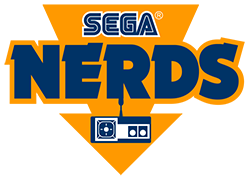
The Rise Of Emulation
Nostalgia is a powerful tool that has been used to capture the hearts of modern gamers – we’ve seen it most recently with the Final Fantasy VII remake. This new version has given the younger generation an opportunity to experience a retelling of a classic, but also those who originally played the games in the late 90’s an opportunity to experience the reimagined story in a wave of nostalgia. But nothing quite captures the feeling that playing the original does, and as our technology and hardware have developed, software to aid in recapturing that feeling has grown alongside it. Libraries of games, and experiences that may have seemed lost for some, are more available than ever.
This is becoming increasingly alluring as time goes by too – our favorite older consoles are aging extremely quickly, and many are falling out of commission as time catches up with them. Finding newer units, or those in good condition, becomes harder as each year passes. The same is true for the games that would run on these consoles, as many would run using memory chips that would fade over time ,and as they fall out of repair and are thrown away, the library begins to shrink . As a result. This has led to huge price gouging on some older systems and games – many look to capitalize of the increasing desire for nostalgia, and we see absurd pricing on older consoles and game cartridges which may have also served as a small push for a growth in emulation software.
Luckily for fans of nostalgia however, has been the very fast rise and adoption of emulation software to recapture and preserve these older games, and moving forward the newer stuff too. We now have the ability to download an emulator for any of the classic consoles we may have had during our childhood, along with a full library of games to compliment it. Gaming, and mobile gaming in particular, is on the rise. The hyper-casual gamer turns to the huge libraries of games for the UK, US, Canada and other countries in the way of casino and fast puzzle games, but emulating on these devices is also becoming more common as those same gamers are trying to recapture some old feelings that were found playing these classic originals.
VBA, No$GBA, DeSmuME, Citra, and CEMU – These are the most prominent Nintendo emulators out there – from the early handheld consoles through to the more modern consoles in the Wii U, and there are even steps being taken for emulation of modern Nintendo Switch games.
Some of these emulators, especially for the handheld variants, are also available to download for Android and Apple smartphones thus taking emulation away from the PC and back into the handheld as they were designed, As mentioned earlier, many of these earlier games relied on a battery and memory chip within the game cartridge themselves, and as time passes they can slowly die or become corrupt and if they aren’t replaced, these cartridges are typically just thrown away. The originals are slowly being lost and emulation software is what is helping keep them alive.
RetroArch and Kega Fusion – The other side of the 90’s nostalgia coin to Nintendo, was always Sega and some of the big IPs that led to modern gaming. Unfortunately, the emulation scene for Dreamcast for the time being is all but dead, but for those looking to recapture some of the original Sega games for the Genesis, Game Gear etc, there are options out there. The audio may be a little spotty as emulating the original sound chip may not be the easiest, but the video is spot on and modern tech has allowed for upscaling and filters to be applied to enhance the experience where needed.
PCSX and PCSX2 – The premier for emulating PlayStation and PlayStation 2 games – although a little extra beef is needed to emulate 3D graphics, and as such these are unavailable for our smartphones. These emulators are slowly being phased out, as with the Nintendo emulators, in a way as the developers and publishers are reworking these older titles to re-release the original versions on newer consoles. But for those who don’t have access to a newer console, these emulators serve as a very viable alternative to play these games.

The popularity of emulation may have been a driving force behind the releases of consoles such as the NES Classic, which back in 2018 found a huge demand – and as just mentioned, many of the more original games are finding their way in a digital fashion on to the marketplaces and finding huge success by doing so.
Despite this, emulators still capture a wide audience across both handheld devices in the way of smartphones and tablets, and on desktop solutions through PC and Laptop. Modern consoles are pushing hardware, and for the scheduled upcoming offerings by Microsoft and Sony, it’s seeming likely that unless there is some huge leap in PC hardware, doing any form of emulation on these platforms will still be an extremely long way off.
Emulation may never become a requirement as it did with cartridge based games – but at least for the classics, there are options open for us to recapture the nostalgia of our old favorites.





